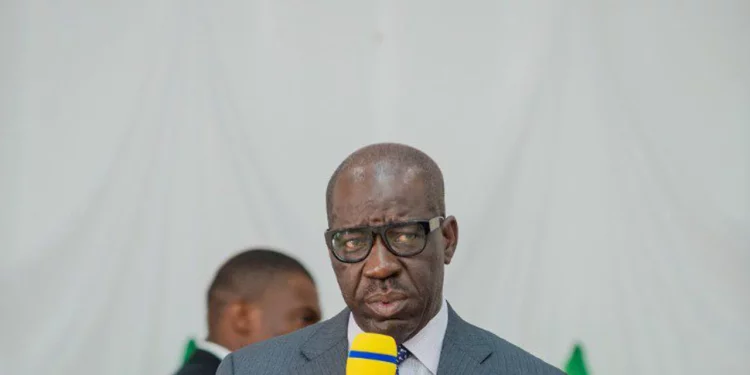Despite challenging economic crisis fueled by the removal of fuel subsidy, Edo State Internally Generated Revenue (IGR) grew by over 40 percent in 2023, recording N17bn increase from the N45bn generated in 2022.
The Chairman, Edo Taskforce on Internally Generated Revenue, Hon. John Osagie Inegbedion, disclosed this at a press briefing after the 2024 EIRS Management Performance Review (MPR), in Benin City, the Edo State capital.
Inegbedion said the 2023 IGR, driven by the State’s formal sector, stood at N62billion, noting that the N17bn growth by Edo State in 2023 accounts for the combined revenue generation performance for 12 States in 2022.
Describing the growth as unprecedented in the history of the State, the EIR boss linked the feat to the business and economic reforms of the Governor Godwin Obaseki-led administration which has continued to attract investments into the State.
According to him, “In 2022, 12 States did N17b total IGR collection. Thus, Governor Obaseki’s economic reforms and investment drive has propelled Edo economy to grow by the value of what 12 states struggled to collect.”
He said, “The total IGR generated in Edo State for the year 2023 by EIRS, Ministries Departments and Agencies stood at N62,079,123,288.37k. When compared with the 2022 total revenue collection of N45,062,587,439.92k, indicates a growth of N17,016,535,848:46k which was not associated with the informal sector but from the formal sector which occurred within a year.
“This is the first time in the history of revenue administration in the State that revenue will be grown by forty percent (40%) over the preceding year”.
Giving insights to what led to the increased IGR recorded, the EIRS boss noted, “The Pay-As-You-Earn (PAYE) tax contributed a total of N26.9 billion which indicates N9.44billion over the previous year from the formal sector.
“Withholding Tax collection for the year 2023 was N4.8 billion with a resulting increase of N1.8b over the previous year.
“Other revenues grew by N1.46billion while Ministries Departments and Agency (MDAs) had a growth of N1.8 with a collection of N8.3billion.
“On the contrary, the informal sector wherein most businesses such as the Micro, Small and Medium Scale Enterprise (MSME), traders, artisans and self-employed operators, had a collection of 1.9billion with a reduction of 312million when compared with 2022 collection of N2.2b.”
The implication of the shortfall, according to Inegbedion “is that EIRS was relaxed on taxing self-employed individuals from the informal sector as individual business owners had some reprieve granted by the Edo State Governor who understands the pains business owners go through as a result of the harsh economic situation and therefore insisted that taxes do not overburdened them”.
He noted that 95% of the increase however came from the formal sector while the informal sector recorded a decline of N312 million.
Inegbedion further noted, “The Governor’s strategic and economic revolution is really having impactful positive growth. Whilst States are struggling to grow their IGR due to the current economic crisis occasioned by removal of fuel subsidies, Edo State economy is flying high due to the foresight of the Governor who long before now has been raising alarm about the impending economic disaster we are currently experiencing. However, he took the initiative and made the necessary wise economic decisions to position Edo for the challenges ahead.”
He added, “We commend the Governor as his investment and economic reforms are showing results as new investments are now paying their PAYE and WHT taxes which are deducted at source. The revenue space is being expanded by the new investment opportunities, we are growing our revenue figures, and we now have more persons coming into the tax net. We encourage Mr. Governor to continue in attracting new investors to the State.









